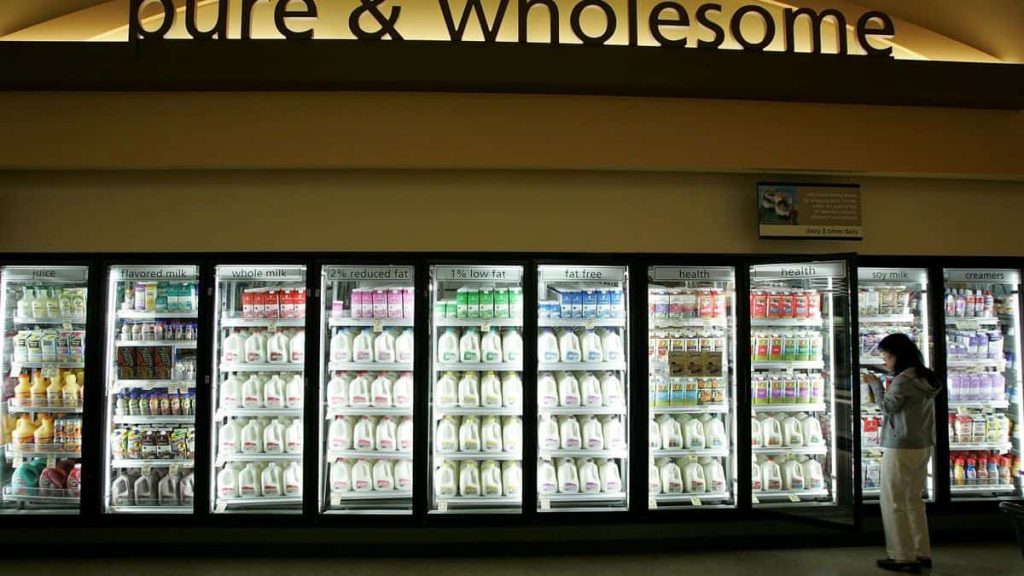
Farm groups called the ruling a “surprising setback” that weakens the value of the USMCA.
Dive Brief:
- Canada’s method of allocating lower tariff rates to dairy importers does not limit access to the market, a dispute panel ruled Friday, rejecting arguments from the U.S.that the country’s measures breached trade commitments.
- The panel, formed under the U.S.-Mexico-Canada Agreement, rebuffed claims that Canada’s market-share approach for determining tariff rate quotas prohibits retailers, food service operators and other importers from securing lower tariff rates.
- Canada revised its tariff rate quota allocation system last year after a dispute panel found the country’s measures were inconsistent with USMCA trade commitments. This latest ruling means Canada is not obligated to make further changes.
Dive Insight:
Access to Canada’s tightly-regulated dairy market was one of the major selling points of the USMCA, and U.S. dairy groups say the latest ruling now represents a “surprising setback” for the industry.
“We are completely stunned and deeply disappointed by this panel’s failure to defend even the most basic rights outlined in USMCA,” Michael Dykes, president and CEO of the International Dairy Foods Association, said in a statement.
At issue is whether Canada favors its own processors when determining who can secure lower tariff rates under its allocation system. The U.S. argued that the country’s market-based system favors processors and prevents distributors and other types of importers from applying for lower duties.
Although the dispute panel agreed that the system skews toward Canadian processors, trade regulators said that is a reflection of the country’s dairy market rather than a tactic to exclude other types of importers. Additionally, the panel said Canada is not obligated to provide rate allocations to every type of applicant.
The panel, made up of three people, included one dissenter who said Canada should not be allowed to exclude retailers and other importers from applying to import quotas. There are no appeal mechanisms if a country believes the findings of a dispute panel are flawed.
“While the United States won a previous USMCA dispute on Canada’s dairy TRQ allocation measures, Canada’s revised policies have still not fixed the problem for U.S dairy farmers,” U.S. Trade Representative Katherine Tai said in a statement. “We will continue to work to address this issue with Canada, and we will not hesitate to use all available tools to enforce our trade agreements.”
Dairy groups have called on the Biden administration to “reset its trade policy agenda” in response to the ruling, which has weakened the USMCA’s value proposition to the industry.
“Against the backdrop of escalating global conflicts and food insecurity, it is imperative that the United States advance new negotiations that dismantle distortions undermining rules-based trade,” Dykes said. “It is time to re-establish the United States as a global leader in negotiating preferential trade agreements with unwavering commitments.”
























